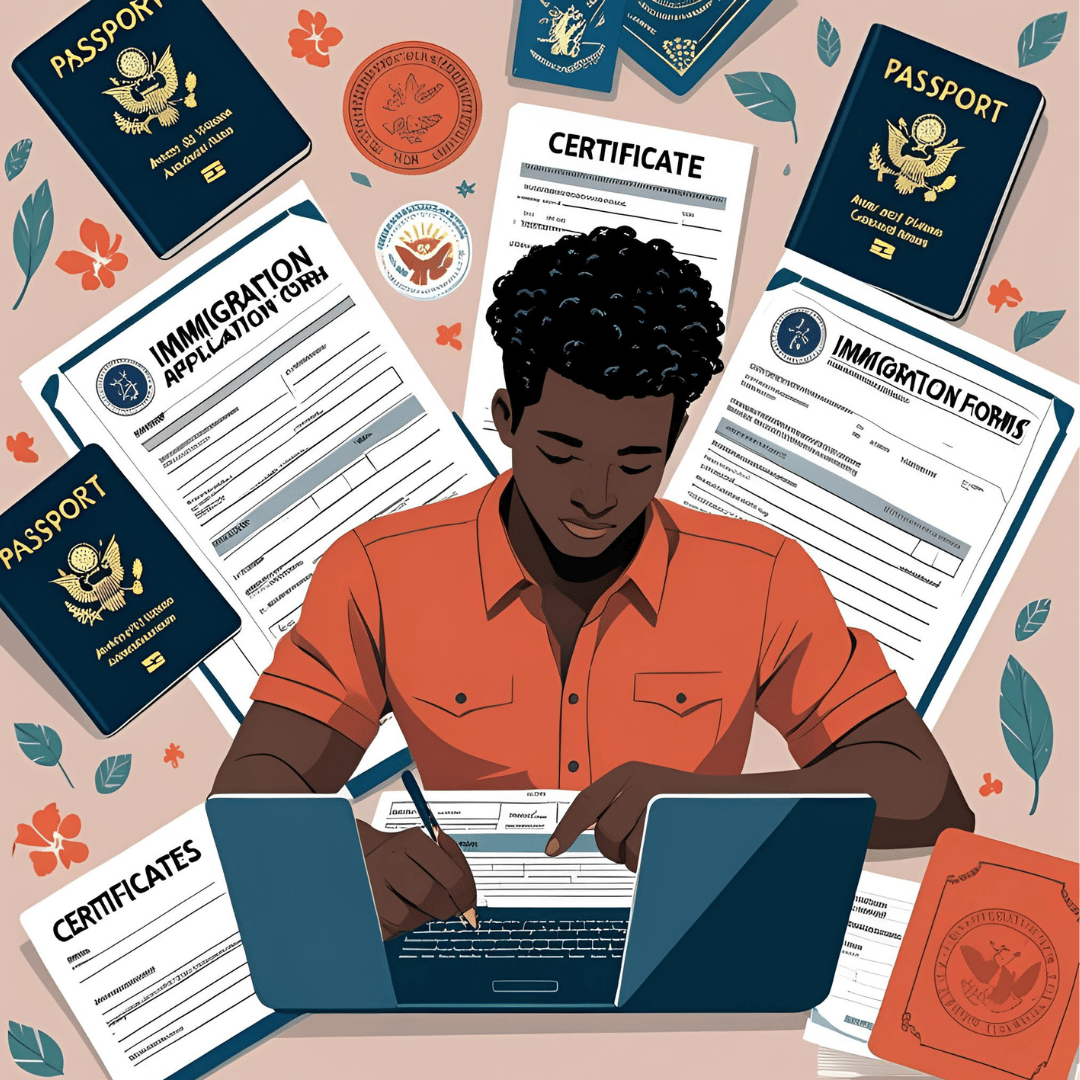Study and Settle Abroad: A Complete Guide for International Students in 2025
7/15/20253 min read


Introduction
Studying abroad is one of the most effective ways to start a new life in a foreign country. For many, a student visa opens the door not only to world-class education, but also to work opportunities, career development, and even permanent residency.
In 2025, many countries are actively encouraging international students by offering flexible study permits, post-graduation work options, and immigration pathways. This guide will help you understand how to legally study and eventually settle abroad — all while staying compliant with visa and immigration rules.
Why Study Abroad?
Here are some of the top reasons international students choose to study abroad in 2025:
Access to high-quality education
Exposure to different cultures and languages
Better career opportunities
Work rights during and after studies
Pathways to permanent residency
Personal growth and independence
Countries like Canada, Australia, Germany, United Kingdom, Netherlands, and New Zealand remain among the top destinations due to their student-friendly policies and immigration pathways.
Step-by-Step: How to Study and Immigrate Abroad Legally
Step 1: Choose the Right Country and Program
When choosing where to study, consider the following:
Language of instruction
Cost of tuition and living
Quality of universities
Availability of work permits
Immigration pathways after graduation
🔎 Tip: Look for programs in fields that are in high demand (IT, healthcare, engineering, etc.), as this increases your chances of finding a job and qualifying for long-term visas.
Step 2: Apply to Accredited Institutions
Only apply to government-approved or designated learning institutions (DLIs). These are schools authorized to accept international students.
For example:
Canada: Must apply to a DLI
Australia: CRICOS-registered institutions
UK: Licensed student sponsors
Once accepted, you’ll receive an official Letter of Acceptance, required for the visa application.
Step 3: Apply for a Student Visa
Each country has its own visa type:
Canada: Study Permit
Australia: Subclass 500 Student Visa
UK: Student Route Visa
Germany: Student Visa for University Admission
USA: F-1 or J-1 Visa
You’ll need:
Valid passport
Proof of acceptance
Proof of funds
Medical insurance
Police clearance (in some cases)
Visa application fee payment
⏱️ Apply early – processing times range from 4 to 12 weeks depending on the country.
Step 4: Arrive and Begin Your Studies
Upon arrival:
Attend orientation sessions
Register your residence (required in Germany, Netherlands, etc.)
Get a student ID, local SIM card, and open a bank account
Learn local laws and student rights
Keep full-time student status (important for visa compliance)
📚 Remember: Missing too many classes or poor grades can risk your visa.
Work While You Study: Legal Rules in 2025
Most countries allow international students to work part-time during their studies:
Canada: Up to 20 hours/week (unlimited during scheduled breaks)
Australia: 48 hours per fortnight
UK: Up to 20 hours/week during term
Germany: 120 full or 240 half days/year
New Zealand: 20 hours/week during term; full-time in breaks
💼 Always check your visa conditions before accepting a job.
Graduate and Stay: Post-Study Work Visas
In 2025, many countries are offering easier ways for students to stay and work after graduation:
Examples:
Canada: Post-Graduation Work Permit (PGWP) up to 3 years
Australia: Temporary Graduate Visa (subclass 485)
UK: Graduate Route Visa for 2–3 years
Germany: 18-month job search visa after graduation
New Zealand: Post-study work visa up to 3 years
These visas give you time to gain work experience and potentially apply for permanent residency.
Pathways to Permanent Residency
Once you gain local work experience, many countries allow you to transition to permanent status:
Canada: Canadian Experience Class under Express Entry
Australia: Skilled Independent or Employer-Sponsored Visas
UK: Indefinite Leave to Remain after 5 years
Germany: Settlement Permit after 33 months (or 21 months with B1 German and stable job)
New Zealand: Skilled Migrant Category
✅ Keep records of your studies, work contracts, taxes, and visa history — they’re crucial when applying for residency.
Financial Planning and Scholarships
Studying abroad is expensive, but there are options to help reduce the cost:
Merit-based scholarships
Government funding (like Erasmus+, DAAD, or Chevening)
On-campus jobs (research assistant, tutoring, etc.)
Part-time work in hospitality, tech, or delivery services
Avoid relying solely on part-time work to fund your studies. Visa officers often reject applications if financial plans are unclear.
Challenges International Students May Face
Homesickness and culture shock
Language barriers (especially in non-English-speaking countries)
Visa confusion (missing renewals or misunderstanding work limits)
Academic pressure
Housing scams – always use verified student housing services
🧠 Support is available: Most universities have international student centers, counselors, and legal advisors.
Tips for a Successful Immigration Journey
Maintain your visa status – no rule-breaking
Build a local network – internships, volunteering, networking events
Learn the local language – even basic skills help
Follow local news on immigration rule changes
Get professional help if applying for permanent residency
Conclusion
Studying abroad in 2025 isn’t just about getting a degree — it’s a powerful first step toward building a future in a new country. By following legal processes, preparing your application thoroughly, and understanding both rights and responsibilities, you can turn your student journey into a long-term opportunity.
Whether your goal is global experience or permanent settlement, planning ahead is key. The road may not be easy, but with the right knowledge and determination, it’s absolutely possible.
Stay informed, stay compliant, and most importantly — stay motivated. Your new life abroad starts with a single, well-prepared application.
Resources
Explore articles and tips for immigration success.
Support
Connect
support@immigrationn.space
+1234567890
© 2025. All rights reserved.
